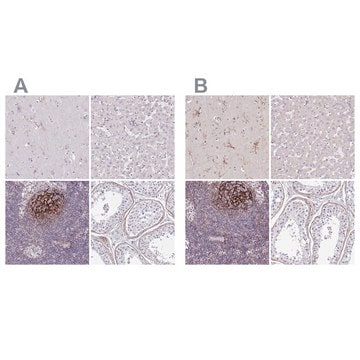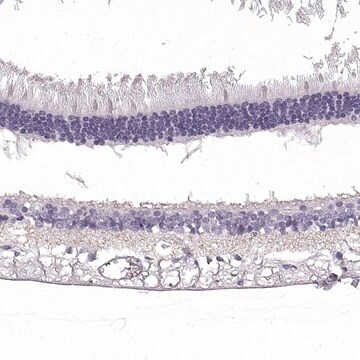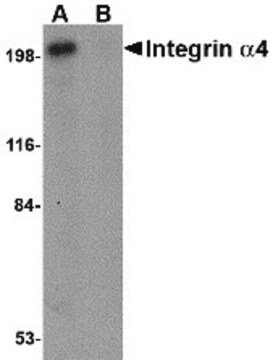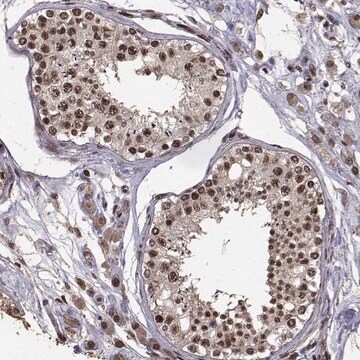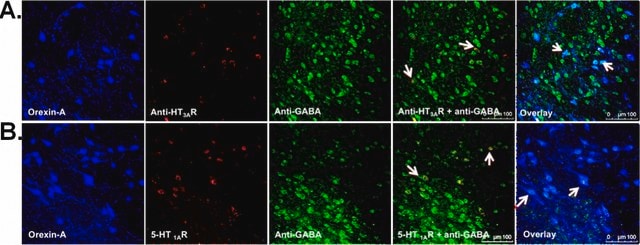MAB1587
Anti-Glutamate Transporter Antibody, neuronal, clone 4D6.2
clone 4D6.2, Chemicon®, from mouse
Synonym(s):
EAAT3
About This Item
Recommended Products
biological source
mouse
Quality Level
antibody form
purified immunoglobulin
antibody product type
primary antibodies
clone
4D6.2, monoclonal
species reactivity
rat
manufacturer/tradename
Chemicon®
technique(s)
immunohistochemistry: suitable
western blot: suitable
isotype
IgG1
NCBI accession no.
UniProt accession no.
shipped in
wet ice
target post-translational modification
unmodified
Gene Information
human ... SLC1A1(6505)
Specificity
Based on protein sequence the antibody is expected to react with mouse, bovine and rabbit.
Immunogen
Application
Neuroscience
Neurotransmitters & Receptors
Immunohistochemistry: 1-2 μg/mL
Optimal working dilutions must be determined by end user.
EAAC1 is approximately 66-70kDa; the protein can form homomultimers during preparation as well, thus often times large 200-220kDa bands can also be seen.
Physical form
Storage and Stability
Other Notes
Legal Information
Disclaimer
Not finding the right product?
Try our Product Selector Tool.
Storage Class Code
10 - Combustible liquids
WGK
WGK 2
Flash Point(F)
Not applicable
Flash Point(C)
Not applicable
Certificates of Analysis (COA)
Search for Certificates of Analysis (COA) by entering the products Lot/Batch Number. Lot and Batch Numbers can be found on a product’s label following the words ‘Lot’ or ‘Batch’.
Already Own This Product?
Find documentation for the products that you have recently purchased in the Document Library.
Our team of scientists has experience in all areas of research including Life Science, Material Science, Chemical Synthesis, Chromatography, Analytical and many others.
Contact Technical Service

